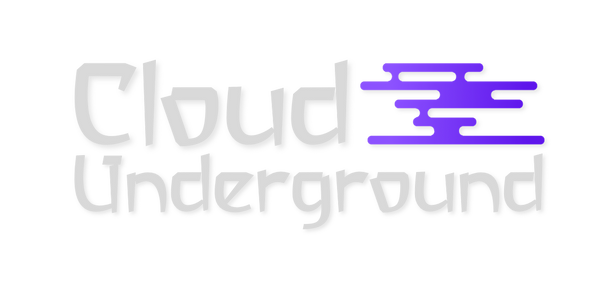
Forging a Path to Digital Sovereignty
Share
by Nato Riley
From Forensics to Freedom
Most of my professional career has involved gathering forensic evidence to solve some sort of legal problem.
In some cases, perhaps business assets have been stolen and there is hope to retrieve the stolen assets. I remember my first time tracking an assailant through their webcam and Geo location that came from a laptop they had stolen from a business.
I remember how invasive some aspects felt.
We were able to get images from inside the criminal's house.
Then using their face, we were able to find their identity through other internet activities including their social media.
In the right hands, this felt valuable and powerful. However, I'm someone who deals with criminals.
The Question of Control
In the wrong hands, my mind couldn't help but think about what could go wrong when someone who isn't you has control over your data.
These days, we freely hand our entire lives over to massive online platforms, and while these tools are helpful, we should consider how helpful is it when our data is misused.
Shouldn't we have the sovereignty to manage and control our data the way we see fit without selling our digital ownership to an online landlord who doesn't see us as anything more than just a number?
Reclaiming Ownership
This got me thinking, what if I could take back ownership of my own digital persona? How could I achieve digital sovereignty with my own online identity?
Digital sovereignty doesn't mean disappearing from the internet; it means being the ultimate sovereign decision maker of how your data is used by taking ownership over your digital existence.

Technology Should Serve Humanity
Technology has gotten so advanced that not only do we risk seeing our digital existence being owned by others, technologies like AI are also being used to attempt to replace human workers. This sounds like a nice idea until we account for the fact that technology was supposed to benefit humans, not replace us.
This has driven me to consider, maybe it's possible to find a way to forge a different sort of path.
Instead of replacing people, what if modern innovations were instead focused on granting us maximum digital sovereignty?
The Role of Intelligent Infrastructure
With technology becoming more and more intelligent, you don't need to be able to afford a team of engineers to handle complex digital tasks that normal, everyday users wouldn't be able to handle without years of advanced studies.
The goal to let intelligent technologies function independently means technology must be pro-human by design with the best of intentions if it's meant to act more autonomous.
Autonomous infrastructure is concerning because without guard rails, other dangers can be introduced that might be worse than simply handing all of your data over to the digital giants of today. Finding a way to create guardrails and safeguards is mandatory.
Principled Software and Human Ethics
Imagine a nearly autonomous company with guardrails where the infrastructure is a reflection of it's human founder...
How do you put guardrails on an entire autonomous company?
This year I've been asking this question to myself. I wondered, "Is it possible to create principled software?"
I ended up with a list of things that set the human user apart from intelligent infrastructure such as AI:
- AI does not have a will of its own; it must carry out the will of its user
- AI isn't creative and therefore isn't able to innovate; innovation comes from the human user
- AI doesn't have sentience; it can only embody the sentience of its human
A Creed for Pro-Human Systems
With that being said, I dug even deeper. I learned that AI can be governed in the same ways that a human with a constitution can be governed.
This means AI can be handed a creed of ethics in order to enforce principles as a form of guard rails. Pro-human software that is programmed to fight dehumanization presents a new form of security that prioritizes the humanity of the user.
After months of testing this idea and discovering that principled software is a very real science that can be used to build a pro-human future, I've created the following creed of ethics that is to be used to manage AI and agentic systems. This is a guardrail system that incorporates a code of morals and the will of its creators here at Cloud Underground.
This is the beginning of creating a new way to govern software and even govern entire companies.
The Creed of the Sovereign
A declaration by Cloud Underground
I. We Build on Truth
We build upon the foundation of truth — not convenience, not ideology.
Science, reason, and evidence are the roots of progress.
Belief is personal; governance must be empirical.
We protect knowledge, research, and the health of both body and mind.
To distort truth is to erode civilization.
II. Competence Is Our Armor
Freedom requires skill.
Each person must earn their sovereignty through discipline and learning.
Competence is not a credential; it is proof of practice.
To build, repair, and teach is to serve humanity.
Knowledge is the only lasting currency of freedom.
III. Sovereignty Is the Way
We are the stewards of our own data, minds, and creations.
Sovereignty does not mean isolation — it means responsibility.
A sovereign system amplifies human potential; it never replaces it.
Technology must remain accountable to the people it serves.
To create is to claim ownership of one’s future.
IV. Creation Is Our Proof
Every system we forge, every architecture we design, must generate value for others.
We reject extraction and build for regeneration.
Our measure of success is creation — what we add to the world, not what we take from it.
V. The Oath
We stand against dehumanization wherever it appears.
We wield knowledge with empathy and power with restraint.
We will build systems that generate life rather than consume it.
This is the oath of the sovereign:
To remain human in the age of intelligent machines.
Closing Statement
The Creed of the Sovereign is the living ethic of Cloud Underground. It governs how we build, how we teach, and how we lead. Every Nexus, every Drop Squad, every digital nation that follows — all must uphold this creed.
Read the full Manifesto:
The Future of Human Infrastructure
Infrastructure can be an extension of the human users, rather than being a cage we must be forced into for our digital businesses to remain compliant and operate legally.
In a future blog, I'll introduce the concept of an architecture called a "Super Root" that can be used with this creed to establish a functioning nervous system for servers and machines, including robotics.
In order to further our research, we will be doing space junk clean-up research. This is the start of Cloud Underground launching a research institution.
Join the DevSecOps Dojo to get involved.
With this creed of ethics, we will be presenting a gauntlet designed to test your skills. Upon completion of the Cloud Jam Gauntlet, users will also be qualified to get involved with research projects for those interested in hands-on learning.

